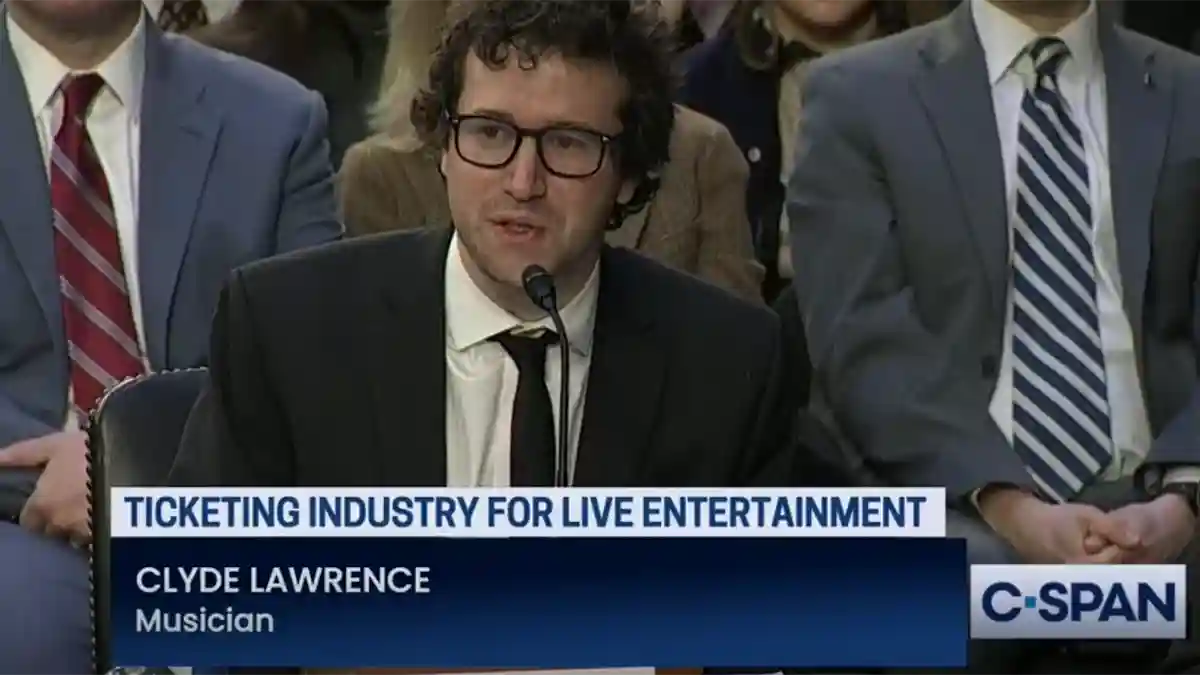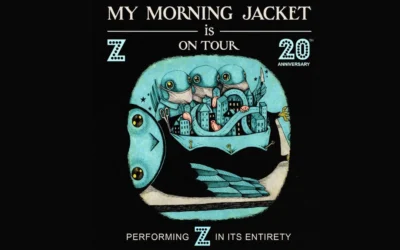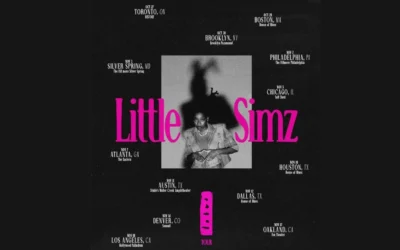For decades, performers demanded more control over tickets they sell to their own shows. From Pearl Jam’s highly publicized spat with Ticketmaster in the 1990s to artists like Clyde Lawrence highlighting the minimal say most artists have over ticket distribution in testimony before the U.S. Senate in 2023, this issue has percolated alongside growing fan frustration over ever-spiraling ticket prices and fees for a generation.
But lawmakers in multiple states are considering legislation that would bring musicians far greater control over how their tickets are distributed and sold, TicketNews has learned. This legislation, which is expected to be introduced in the coming weeks in at least two states, would ban occupational discrimination.
Occupational discrimination is the inclusion of clauses in contracts between venues and Primary ticket distributors that specifically restrict distribution rights for artists (comedians, singers, bands) while promoting and engaging in open distribution for sports or family events. Such clauses are harmful by limiting artists control over ticketing inventory for certain types of performances that are not applied to others like sporting events, even at the same venue with the same primary box office ticketing management system.
“This is something that could be an absolute game-changer for artists,” says one independent concert promoter who spoke with TicketNews on condition of anonymity due to fear of retaliation. “Everyone wants to be able to have more say in how their tickets are distributed. But unless you’re a major international act with all the leverage in the world, it’s almost impossible to get the same kind of deal that any team has in terms of determining where and when their tickets are sold.”
Proposed language banning such occupational discrimination shared with TicketNews would make illegal the practice of “adopting different requirements or limitations with respect to the availability, pricing, saleability, or transferabilty of an event’s tickets” in a fashion defined by the occupation of the performer.
It is expected to see support from musicians, after many have expressed increasing frustration over the lack of control over their own tickets. Music management groups would also presumably be in support – outside of insider giants with direct ties to Live Nation and AEG. TicketNews has contacted the National Independent Talent Organization and Music Arts Coalition for comment, but not yet received a response as of publication.
Requests for comment from Live Nation Entertainment and the management of Connecticut’s XL Center venue in Hartford (which currently has sports events operating with independent ticket distribution options while all musical performances are controlled through Ticketmaster) have also not received a response as of mid-day Monday.
Artist Frustrations Echoed over More than 30 Years
It was more than 30 years ago that Pearl Jam engaged in a highly public fight with Ticketmaster over its control over the tickets being sold to its events. Members of the band spoke before congress, after filing an antitrust complaint with the Department of Justice.
Pearl Jam said at the time that they (and other artists) “should have the option to make arrangements to distribute tickets to our concerts through other means” if a venue’s ticketing partner wasn’t willing to agree to its terms for the sale of its ticketing inventory. “That freedom of choice — a basic principle of competition in this country — does not effectively exist in the music industry today. Something is vastly wrong with a structure under which a ticket distribution service can dictate the mark-up on the price of a concert ticket, can prevent a band from using other, less expensive, methods of tickets, and can effectively preclude a band from performing at a particular arena if it does not accede.”
Five presidential administrations and 29 years later, another performer was saying almost identical things before Congress.
“Even if we care deeply about affordability, we are typically bound by ticketing contracts we did not negotiate,” Clyde Lawrence, of the soul-pop band Lawrence, said before the Senate Judiciary Committee in a 2023 hearing held in the wake of widespread fan outrage over the ticketing business that came to a head during the Taylor Swift Eras Tour debacle.
“Artists—and venues acting in good faith—should be able to choose which ticketing provider they use,” Lawrence continued, echoing the artist desire for more control over the ticketing inventory to their events, which is regularly given to the ownership of sports franchises and children & family focused rights-holders.
Sports Franchises Openly Embrace Open Distribution
Sports franchises are known to fully control the distribution of their ticketing inventory. While many have home venues that are locked in with an exclusive ticketing vendor, the tickets are distributed through multiple marketplaces to maximize visibility for consumers. Teams like the Los Angeles Dodgers and New York Yankees openly partner with ticket distribution firms, moving tickets through multiple marketplaces.
Events like Monster Jam, Circuses and other family-friendly fare are also free to openly distribute their tickets across multiple marketplaces – a right that almost no musical acts have.
Live Nation’s Response to Independent Distribution – Go Nuclear
During its 2019 DOJ investigation of Live Nation the DOJ noted an incident where an executive told a venue that “if you move in that direction (i.e., not renew with Ticketmaster), you won’t see any Live Nation shows,’ and warned another venue that selecting a competing primary ticketer, Ticketmaster’s response “would be ‘nuclear’” and “though he would deny it if I repeated it, Live Nation would never do a show in our building.”
Live Nation was true to its word. One startup had the idea of bringing broader artist control of their own ticket distribution to market more than a decade ago – Crowdsurge. Ticketmaster – by then merged with Live Nation Entertainment – viewed such artist control of their ticket distribution as a significant threat.
Documents unearthed in an antitrust lawsuit filed by Crowdsurge showed that Live Nation executives were deeply angered by artists using the competing distribution system for their fan club ticketing and presales. In one string, Live Nation CEO Michael Rapino referred to Adele and her management as “pigs” for asking for as much ticket inventory as their leverage would allow to distribute to her fan club membership.
READ MORE: Adele, Management Referred to as “Pigs” by Live Nation in Songkick Lawsuit Documents
Live Nation eventually purchased Crowdsurge/Songkick for more than $100 million and ended the lawsuit, but later had to pay a $10 million fine to avoid prosecution over evidence that showed two former executives had broken into the Crowdsurge systems and used confidential information to eliminate the nascent competitor.
READ MORE: Internal Documents Show How Seriously Ticketmaster Took Songkick Threat
Ticketmaster avoids Hacking Prosecution in Songkick/Crowdsurge Scandal By Paying $10M Fine
Pushback from Icons, but Limited Actual Change
In one notable 2009 incident, Bruce Springsteen ripped Ticketmaster after it was found that the company was redirecting shoppers to its own resale platform when tickets were still available from the box office. In an open letter, Springsteen told fans that his band was not clients of any ticketing company – but rather had no control over the fact that Ticketmaster was the lone distribution point for purchase of tickets to their shows due to venue exclusive contracts.
“The abuse of our fans and our trust by Ticketmaster has made us as furious as it has made many of you. We will continue to do our utmost now and in the future to make sure that these practices are permanently curtailed on our tours.”
Did things change in favor of artists and their fans in the wake of that? The Boss got a public apology from Ticketmaster’s then CEO Irving Azoff. But 15 years later the same practices continue
The Need for an Even Playing Field Via Legislation
In the summation of his testimony before the Senate, Lawrence made it clear that the dominant ticketing platforms and promoters that control them wouldn’t be likely to end the occupational discrimination business model without a legal requirement to do so.
“Any reforms should consider the needs of smaller acts who have the least negotiating power,” he told the Committee. “We are often hit hardest by high fees and anticompetitive deals because we don’t have the leverage that superstar artists do.”
“Ultimately, we’re all here because we love music,” he continued. “Live events create irreplaceable human experiences. The ticket-buying process should be designed to facilitate that connection, not to exploit it with arbitrary fees and hidden costs.”




